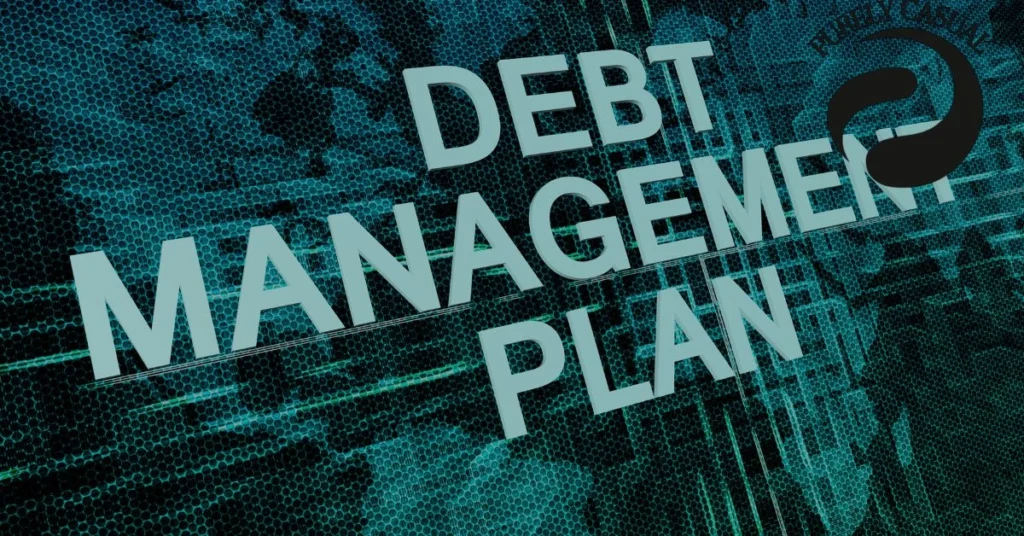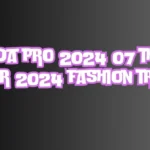Receiving calls from 800-955-6600 can be frustrating and stressful. This number belongs to Northland Group, a debt collection agency that often contacts individuals about unpaid debts. If you’re getting repeated calls from this number, it’s likely because they are attempting to collect a debt you owe.
Debt collection calls are common when bills like credit cards, medical expenses, or loans remain unpaid. However, these calls don’t always mean you owe the debt. Sometimes, collection agencies target people by mistake or with outdated information. This is why it’s important to verify the debt before taking any further action.
Ignoring calls from 800-955-6600 might seem like an easy option, but it can lead to more serious issues. Unanswered debt collection attempts could damage your credit score or even result in legal action. By understanding who’s calling and why, you can make informed decisions about how to handle the situation.
One of the first steps you can take is to determine whether the debt is legitimate. This is where a Debt Validation Letter comes in handy. Under the Fair Debt Collection Practices Act (FDCPA), you have the right to ask for proof that the debt is yours before proceeding.
In addition to validating the debt, you have the right to stop further contact from the debt collector by sending a Cease and Desist Letter. This is a formal request for the collector to stop calling. By knowing your legal rights and options, you can reduce stress and take control of the situation.
Also read:https://purelycasual.com/602-671-3998/
Table Of Contents
Legal Rights: What You Need to Know About Debt Collection Calls
When it comes to receiving calls from a debt collector, it’s important to know your legal rights. The Fair Debt Collection Practices Act (FDCPA) is a federal law that protects consumers from abusive practices by debt collectors. Understanding these rights can help you deal with collection agencies like Northland Group more confidently.
Your Rights Under the FDCPA
The FDCPA outlines clear rules that debt collectors must follow. They are not allowed to harass you, call at odd hours, or use threats to collect a debt. If the debt collector breaks these rules, you have the right to take action.
You also have the right to ask for more information about the debt they are trying to collect. This includes requesting the name of the original creditor and the amount owed. If the debt collector cannot provide this information, they must stop contacting you until they do.
Right to Verify the Debt
One of the most important rights you have is the ability to verify the debt. This can be done by sending a Debt Validation Letter. Once you request validation, the debt collector must provide proof that the debt is real and belongs to you. Until they validate the debt, they are required to stop all collection efforts.
Make sure to send this letter within 30 days of their first contact. If the debt is not validated, you can dispute it, and the collector may no longer pursue you for payment.
Cease and Desist Letter: Stopping the Calls
If you want to stop all communication with the debt collector, you can send a Cease and Desist Letter. This letter tells the collector to stop calling you immediately. After receiving the letter, the agency can only contact you to confirm they received it or to notify you of legal action they may take.
This gives you some control over the situation while preventing further harassment. However, keep in mind that while the calls will stop, the debt issue might not go away. You will still need to resolve the debt to protect your credit score.
Reporting Violations of Your Rights
If the debt collector violates your rights under the FDCPA, you can report them. Complaints can be filed with the Consumer Financial Protection Bureau (CFPB) or your state’s attorney general. In some cases, you may also have the option to sue the debt collector for damages.
Knowing these rights empowers you to take the right steps when dealing with unwanted debt collection calls. By understanding the FDCPA and using tools like the Debt Validation and Cease and Desist Letters, you can protect yourself from unfair practices.
Effective Ways to Stop Calls from a Debt Collector
Dealing with debt collection calls can feel overwhelming, but there are ways to make them stop. Whether you want to confirm the debt or stop the calls entirely, you have several options. Below are some simple steps you can take to handle these calls effectively.
Send a Debt Validation Letter
The first step to stopping calls is verifying that the debt is real. You can do this by sending a Debt Validation Letter. This letter requests the collection agency, like Northland Group, to provide proof that the debt is yours and accurate.
Once you send this letter, the collector must stop contacting you until they can prove the debt is valid. This gives you time to review the information and decide what to do next. Make sure you send this letter within 30 days of the first contact.
Send a Cease and Desist Letter
If you don’t want to receive any more calls, you can send a Cease and Desist Letter. This is a formal request that tells the debt collector to stop all communication with you. After receiving the letter, they can only contact you to confirm they will no longer reach out or to inform you of legal action.
This is a good option if you feel harassed or overwhelmed by the calls. However, keep in mind that while the calls will stop, the debt issue might not go away. You will still need to resolve the debt to protect your credit score.
Negotiate Your Debt
Another option is to negotiate with the debt collector. Northland Group may be willing to settle the debt for a smaller amount or set up a payment plan. This can help you manage your debt without damaging your financial future.
Negotiating can be a win-win solution if you are able to pay off the debt in a way that fits your budget. Just make sure to get any agreements in writing to avoid confusion later.
Report Violations
If the debt collector violates your rights, you can report them to the Consumer Financial Protection Bureau (CFPB). You can also file a complaint with your state’s attorney general. These agencies can investigate the collector and take action if needed.
Don’t hesitate to report any unfair or illegal practices. By reporting the violations, you can help stop abusive debt collection practices for yourself and others.
Block the Number
If you want a quick, temporary solution, you can simply block the number on your phone. Most smartphones have an option to block specific numbers. While this won’t solve the issue permanently, it will give you some immediate relief from the calls.
Blocking the number can be useful if you’re still deciding how to handle the debt. However, keep in mind that blocking won’t stop the debt from affecting your credit if it’s not resolved.
Managing Your Debt Without Risking Your Credit
Handling debt collection calls can be stressful, but it’s important to take action without hurting your credit score. Ignoring the situation could make things worse, so knowing how to deal with the debt effectively is crucial. Here are some strategies to help you manage your debt without risking your financial health.
Understand the Impact on Your Credit Score
Unresolved debt can damage your credit score, especially if it’s sent to collections. When a debt is in collections, it can stay on your credit report for up to seven years. This can affect your ability to get loans, mortgages, or even certain jobs.
To protect your credit, it’s essential to address the debt quickly. Whether you verify, dispute, or negotiate, taking action can help minimize long-term damage.
Set Up a Payment Plan
If the debt is legitimate and you’re unable to pay it in full, you can set up a payment plan with Northland Group. Many debt collectors are willing to work with you on a schedule that fits your budget. This can help you avoid further damage to your credit score while paying off the debt.
Make sure to get the terms of any debt settlement or payment plan in writing. This ensures there are no misunderstandings, and you have proof of your agreement if issues arise later.
Dispute Incorrect Debt
If you believe the debt is not yours or is incorrect, you have the right to dispute the debt. This can be done after sending a Debt Validation Letter and reviewing the information the collector provides. If the debt is invalid, the collection agency must stop pursuing you for it.
Disputing a debt protects your credit from being harmed by false information. It also stops collection efforts until the issue is resolved, giving you peace of mind.
How to Rebuild Your Credit After Debt Collection
If the debt has already impacted your credit score, there are ways to rebuild it. Start by paying off any remaining debts or making consistent payments on your current accounts. Over time, this will help improve your score.
You can also check your credit report regularly to ensure that the collection account is removed once the debt is settled. Taking these steps can help you regain control of your financial future and improve your overall credit health.
Conclusion
Dealing with calls from 800-955-6600 can be overwhelming, but knowing your rights and options can make the process easier. Whether you choose to verify the debt with a Debt Validation Letter, stop the calls with a Cease and Desist Letter, or negotiate a payment plan, taking action is key to protecting your credit score and financial well-being.
Ignoring the calls may lead to bigger problems, including damage to your credit or potential legal issues. By understanding the Fair Debt Collection Practices Act (FDCPA), you can protect yourself from harassment and unfair practices.
Take control of the situation by using the right tools and steps to handle the debt. This will give you peace of mind and help you move forward confidently.
FAQs
Why is Northland Group calling me?
Northland Group is likely calling because they are attempting to collect a debt. This debt could be from an unpaid credit card, medical bill, or other loan that has been sent to collections.
How can I verify if the debt is legitimate?
You can verify the debt by sending a Debt Validation Letter to the debt collector. They are required to provide proof that the debt is valid and belongs to you before continuing collection efforts.
Can I be sued if I ignore the calls?
Yes, ignoring debt collection calls may lead to legal action. If the debt is legitimate and remains unpaid, the collector may sue to recover the money. It’s important to address the situation instead of avoiding it.
Will sending a Cease and Desist letter stop all debt collection attempts?
A Cease and Desist Letter will stop the collector from contacting you, but it does not eliminate the debt. The collection agency may still take legal action to recover the money if the debt is valid.
How long can debt collectors keep calling me?
Debt collectors can continue calling you as long as the debt is unresolved. However, after sending a Cease and Desist Letter, they are required by law to stop contacting you directly. They can only notify you of any further legal action.
What should I do if Northland Group won’t stop calling?
If Northland Group continues to call after you’ve sent a Cease and Desist Letter, you can report them to the Consumer Financial Protection Bureau (CFPB) or your state’s attorney general. You may also consider legal action if they violate the FDCPA.
Can blocking the number hurt my credit score?
Blocking the number will not directly affect your credit score, but ignoring the debt can. If the debt is legitimate and unresolved, it can harm your credit over time, even if you’re not receiving calls.
Is there a statute of limitations on debt collection?
Yes, every state has a statute of limitations that limits how long a debt collector can sue you over a debt. However, even after the statute expires, collectors can still try to contact you to recover the debt, but they cannot take legal action.
These FAQs provide clear answers to common concerns, helping readers better understand their situation and options when dealing with debt collection calls.







